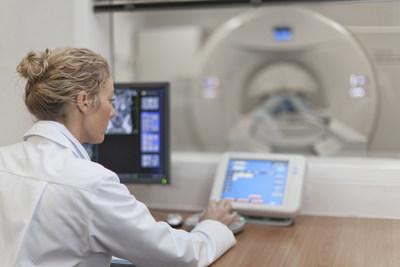
February 24, 2021 — Frost & Sullivan's recent analysis, Technological Advancements and Emerging Applications in the Global Magnetic Resonance Imaging (MRI) Market, Forecast to 2024, finds that the MRI market is diversifying with momentum in the privatization trend. Growing public-private partnerships and an increase in near-replacement time in public domains are expected to attract more MRI system procurements. Technologies such as point-of-care, pediatric, dry-magnet, and compact MRI and fusion imaging are driving the global MRI market. By 2024, the total MRI market is estimated to garner revenue of $4.52 billion from $3.99 billion in 2019, up at a compound annual growth rate (CAGR) of 2.5%. However, with the COVID-19 outbreak, the market experienced a slowdown and is likely to reach the pre-COVID levels in 2023, registering impressive growth.
"The open MRI segment will continue to diminish with wider adoption of 1.5T and 3T MRI systems that incorporate increased field of view and radiofrequency (RF) channels, and enhanced signal-to-noise ratio, optimizing patient throughput with improved static and dynamic imaging capabilities and artificial intelligence (AI)-augmented technical features," said Poornima Srinivasan, Healthcare Industry Analyst at Frost & Sullivan. "The commercialization of portable MRI is expected to increase dramatically in the mid to long term. The inclusion of technologies that improve workflow, portability, and the ability to cater to various applications are competitive factors driving the market."
Srinivasan added: "From a market segment perspective, high-field and extremity MRI are vital contributors to the total MRI market, garnering revenue at a CAGR of 8.5%. In developing economies with a large population base, improved healthcare facilities and physicians' preference for 1.5 T MRI is preferred over other conventional medical imaging methods."
The market will have the following growth opportunities worldwide:
- North America: While the US witnessed moderate growth of 3%-4% in procedural volume, in Canada, MRI examinations grew by 0.9% in the past three years.
- Western Europe: The market opportunity is moderately spread across 1.5T and 3T for brain, MSK, and oncology imaging. While public hospitals account for 70% of traditional imaging procedures, private and imaging centers account for 80% of the emerging applications.
- Eastern Europe: An estimated 80% of MRI systems will be 1.5T MRI systems in 2024, and procedures will be primarily driven by the private sector.
- APAC: Driven by volume growth, APAC's MRI market is boosted by new 3T sales in Japan and ASEAN and 1.5 T in India and China.
- LATAM: There will be a significant uptake of 1.5T by 2024 across geographies due to public-private partnerships and local manufacturing by EOMs. Private hospitals' plans for expansion and provision of decentralized services for examination, diagnoses and cancer-specific treatments will accelerate the demand for MRI.
Technological Advancements and Emerging Applications in the Global Magnetic Resonance Imaging (MRI) Market, Forecast to 2024 is the latest addition to Frost & Sullivan's Healthcare research and analyses available through the Frost & Sullivan Leadership Council, which helps organizations identify a continuous flow of growth opportunities to succeed in an unpredictable future.
For more information: ww2.frost.com/


 August 06, 2024
August 06, 2024 








